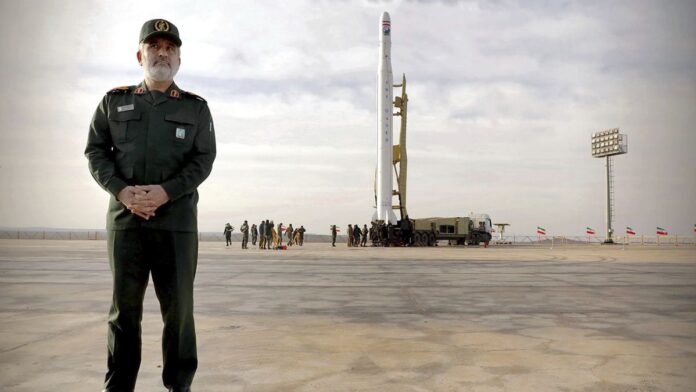Author: Ali Akbar Dareini
Affiliation: Center for Strategic Studies
Organization/Publisher: Aljazeera Centre for Studies
Date/Place: May 7, 2020/ Doha, Qatar
Type of Literature: Report
Number of Pages: 11
Link: https://studies.aljazeera.net/en/reports/orbit-iran%E2%80%99s-nour-1-satellite-and-two-wing-doctrine
Keywords: Security, Technological leap, Balance of power.
Brief:
Iran’s satellite launch on April 22, 2020, is a significant leap in its military’s capability in spite of continued US sanctions. The American policy of “Maximum Pressure” has been faced with “Maximum Resistance” leading to this achievement which strengthens Iran’s intelligence capabilities. This domestically developed rocket technology made Iran one of only 9 countries to have this technology. The event has alarmed the West, and accusations were thrown that Iran’s space program is but a cover for an intercontinental ballistic missile program with nuclear warheads. The US Secretary of State berated Iran’s program and accused it of going against UN resolution 2231 which prohibits any activity related to ballistic missile development that is capable of carrying a nuclear weapon; Iran has denied any accusations as there is no evidence to back US claims, and Western missile experts have also doubted American claims. Furthermore, the UN resolution does not ban all satellite launches. Meanwhile, Iran has successfully improved its monitoring capabilities and security as the launch success proves to be a technological leap; the domestically made tools made satellite technologies cheaper, lighter, faster and more precise. Geopolitically, the satellite could change the balance of power since it counters the US strategy of undermining Iran’s power pillars, the missile program and regional influence. The satellite strengthened the missile program while it boosted Iran’s regional allies’ morale. The satellite is believed to be the product of Khomeini’s “Two Wings Doctrine” which aims to enhance Iran’s security and regional power. The satellite enhances Iran’s position and gives it more deterrence power and leverage in negotiations, thus lessening future prospects of being bullied by the West.
By: Omar Fili, CIGA Research Intern




